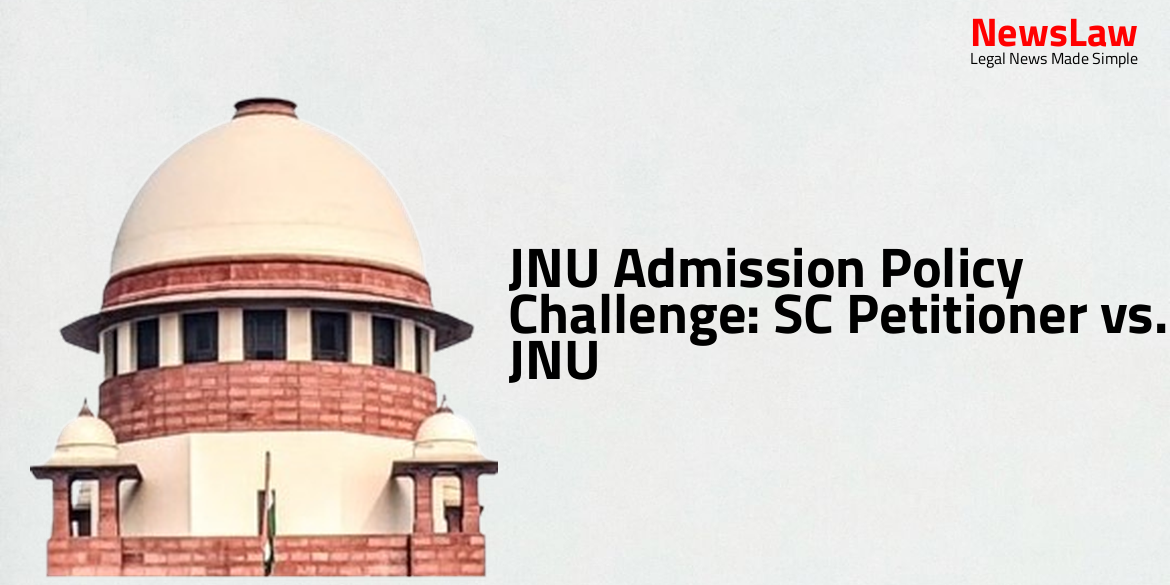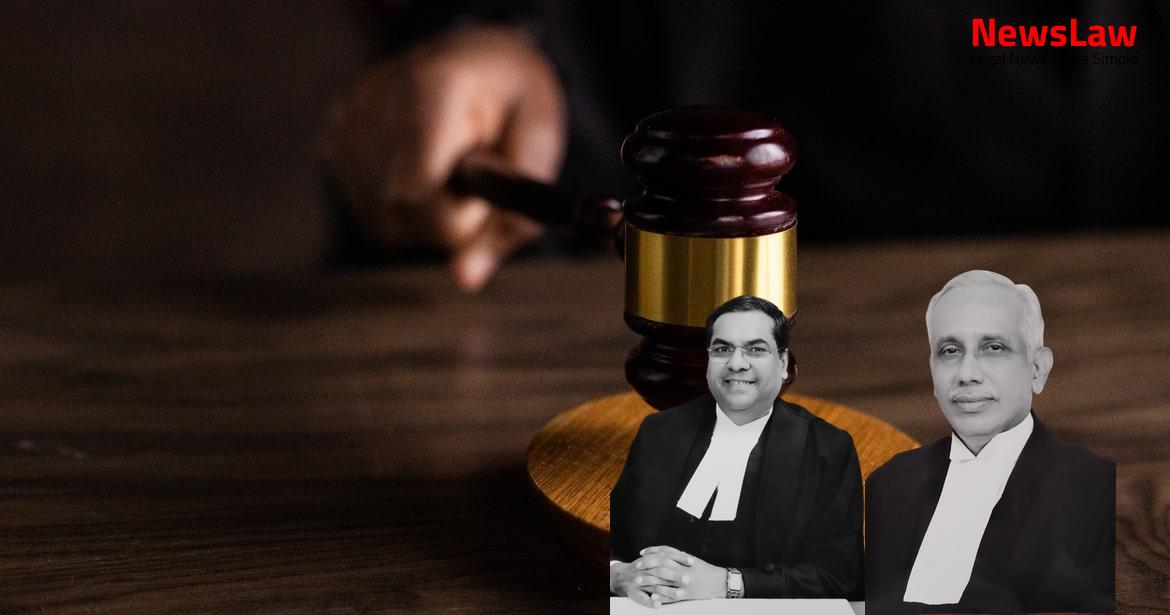In a significant legal case, a SC category student challenges Clause 12 of the JNU Admission Policy for the B.A. (Hons) course in Foreign Languages. The petitioner argues that the division of candidates into Code-I and Code-II based on their Class XII examination year lacks a rational nexus with the admission process’s objective. Stay tuned to learn more about the Court’s ruling on this matter and its implications for educational policies.
Arguments
- The petitioner, a SC category student, challenges Clause 12 of the JNU Admission Policy for the B.A. (Hons) course in Foreign Languages for the academic session 2023-2024.
- The Clause divides candidates into Code-I and Code-II based on the year they passed their Class XII examinations.
- The petitioner argues that this division lacks a rational nexus with the admission process’s objective, violating Article 14 of the Constitution.
- Despite scoring 63.7174%, the petitioner was placed in Code-II and not admitted, while a SC category student with a lower score of 62.7708% was admitted under Code-I.
- The petitioner contends that the 80%-20% quota division is arbitrary and unfair, disadvantaging candidates who passed Class XII exams earlier.
- The aim of prioritizing recent academic qualifications is emphasized by the university to ensure up-to-date knowledge and skills among admitted students.
- The petitioner reappeared for CUET in 2023 in an attempt to secure admission to the B.A. (Hons) Chinese course.
- Mr. Saha argues that the judgments referred to by Mr. Padhy are distinguishable on both facts and law.
- Mr. Saha asserts that the judgments Mr. Padhy relies on are not applicable to the current case.
Analysis
- The Court cannot interfere with academic policy issues under Article 226 unless the decision is illegal, arbitrary, or capricious.
- The decision to have an 80% quota for recent Class XII students and a 20% quota for earlier students in the B.A. (Hons) course in Foreign Languages at JNU is justified to promote fresher talent.
- The distinction between recent and earlier Class XII pass-outs for admission cannot be deemed arbitrary or violative of Article 14.
- Judicial review should focus on the legality and not on subjective preferences in academic matters.
- The courts must defer to academic authorities’ decisions in matters of educational policy.
- The classification for admission quotas between recent and earlier Class XII pass-outs is not completely arbitrary.
- The Court cannot substitute its judgment for that of academic institutions in crafting admission policies.
- The basis for the distinction in Clause 12 of the JNU Prospectus on admission quotas is not entirely arbitrary.
- Private establishment employees cannot be equated with government/semi-government employees for admission criteria.
- Participation in the selection process implies acceptance of the procedure, barring any challenge later on grounds of illegality.
- The Court must respect academic policy decisions by institutions unless they are unconstitutional or illegal.
- The focus should be on the validity of the clause in question and its adherence to the Constitution, rather than personal preferences.
- Challenging admission quotas requires valid grounds of arbitrariness or unconstitutionality, not personal dissatisfaction with the system.
- Decisions on academic policies have broader implications and affect a large number of individuals.
- Courts step in to interpret, apply, or enforce laws related to education.
- The courts are reluctant to override decisions made by education professionals with technical expertise.
- Challenging a selection process after failing in it is typically disallowed due to the principle of estoppel.
- Courts should exercise caution in dislodging academic policy decisions, unless found to be legally unsustainable.
- Courts should defer to expert views unless exercised arbitrarily or impermissibly.
- The objective is to prevent disgruntled candidates from challenging selections in the hopes of getting a second chance.
- Regulations framed by central authorities such as AICTE have the force of law and are binding on all.
- Failing to succeed in taking advantage of an 80% quota provision, the petitioner now seeks to challenge its validity.
- It is deemed impermissible for a candidate to question the validity of a provision they previously attempted to benefit from but failed to qualify for.
Decision
- The application does not survive for consideration and is disposed of.
- The writ petition is dismissed with no orders as to costs.
- The petitioner is not entitled to relief.
Case Title: VAIBHAV Vs. JAWAHARLAL NEHRU UNIVERSITY (2024:DHC:3188)
Case Number: W.P.(C)-12771/2023



